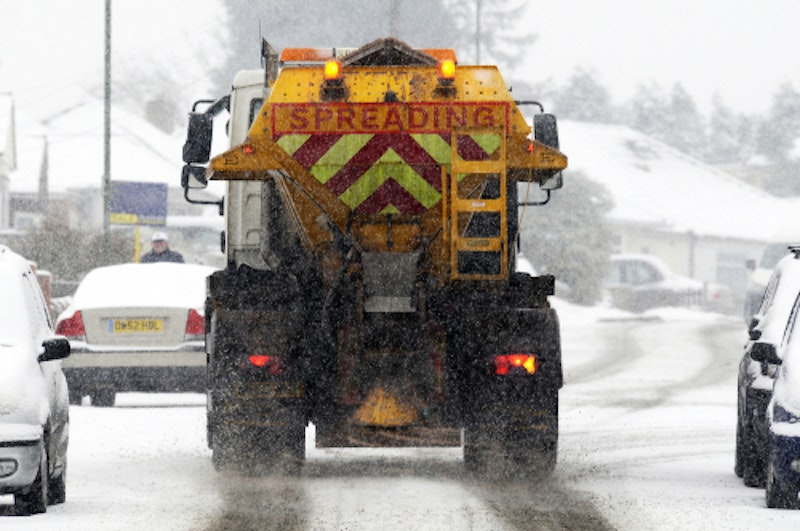Study Notes
GCSE Geography | Managing Extreme Weather in the UK (Weather Hazards 13)
- Level:
- GCSE
- Board:
- AQA, Edexcel, OCR, Eduqas
Last updated 17 Oct 2024
There are a number of ways that extreme weather events in the UK are managed.
Flooding
London, the capital of the UK, is at risk of flooding from storm surges. The city suffered widespread damage when a storm surge swept in from the North Sea in 1953, killing more than 300 people along the east coast. In 1982 the Thames Barrier (pictured below) was installed at a cost of £534 million to prevent storm surges coming up the Thames.
The Environment Agency has responsibility for flood management across the UK - as part of this it constantly monitors ground moisture levels in river basins in order to make accurate predictions of when flood events are likely to occur, so therefore can give residents plenty of warning in the event of needing to evacuate.
UK insurance companies and the government have an agreement in place that states people who buy new-build properties on floodplains will face higher insurance premiums - the idea here is to stop construction companies building on sites where the flood risk is high.

Strong wind and storms
The UK Met Office has highly advanced technology which helps it make accurate predictions about weather events - this means that it can predict severe storms several days in advance, meaning that people can be prepared. The Met Office will also advise people against unnecessary travel.
Advances in media technology also means that it is easier to issue severe weather warnings to a wider audience than in the past (which was via TV, radio and loudhailers in cars) - people can access the latest weather warnings online via computers, tablets and smartphones, even when they are not at home.
Travel companies use these weather warnings to cancel services in the event of extreme weather - this minimises the risk to customer safety but also gives people plenty of time to make alternative arrangements.
Drought and heatwaves
When areas have been experienced prolonged drought conditions individual water companies can announce 'hosepipe bans' which mean that people can not waste water on non-essential uses, such as washing cars, watering the garden and filling up paddling pools. Consumers can be fined if they breach these hosepipe bans. In the summer of 2022 several water companies announced hosepipe bans following a record breaking spell of hot and dry weather.
In an extreme drought event water companies can also apply to the government for an official Drought Order - this means that water supplies to houses are turned off, and members of the public take their turn queuing in the street at standpipes. Fortunately this hasn't happened in the UK since 1976.
Most houses across the UK now have water meters fitted - this means that households are charged for every drop of water that they use, which makes people think a bit more about conserving water. Water companies are also investing more money in pipe networks - upgrading existing pipelines to stop water leakages - water companies across England leak a massive 2.4 billion litres of water each day.
Extreme cold
Local councils are responsible for safety along UK roads - clearing snow and ice is a big part of this. During the winter months gritters will be out all night ensuring that major roads are salted and therefore the risk of accidents caused by ice is minimised, and local councils will send out ploughs in the event of heavy snow fall to ensure that roads are not blocked for long.
Public Health England and other national organisations will sent out cold weather warnings, reminding people to take extra care and minimise travel if needed. Linked to this is the work of various charities that support vulnerable people, who will work hard to raise public awareness and support for the people most at risk during extreme cold, for example isolated elderly people and the homeless.

You might also like

The Iraq Sand River Explained
22nd November 2015
Characteristic Human Responses to Hazards
Study Notes

Coasts: Does Hull have a future?
3rd January 2018
Weather Hazards | AQA GCSE Geography
Quizzes & Activities
Daily Email Updates
Subscribe to our daily digest and get the day’s content delivered fresh to your inbox every morning at 7am.
Signup for emails